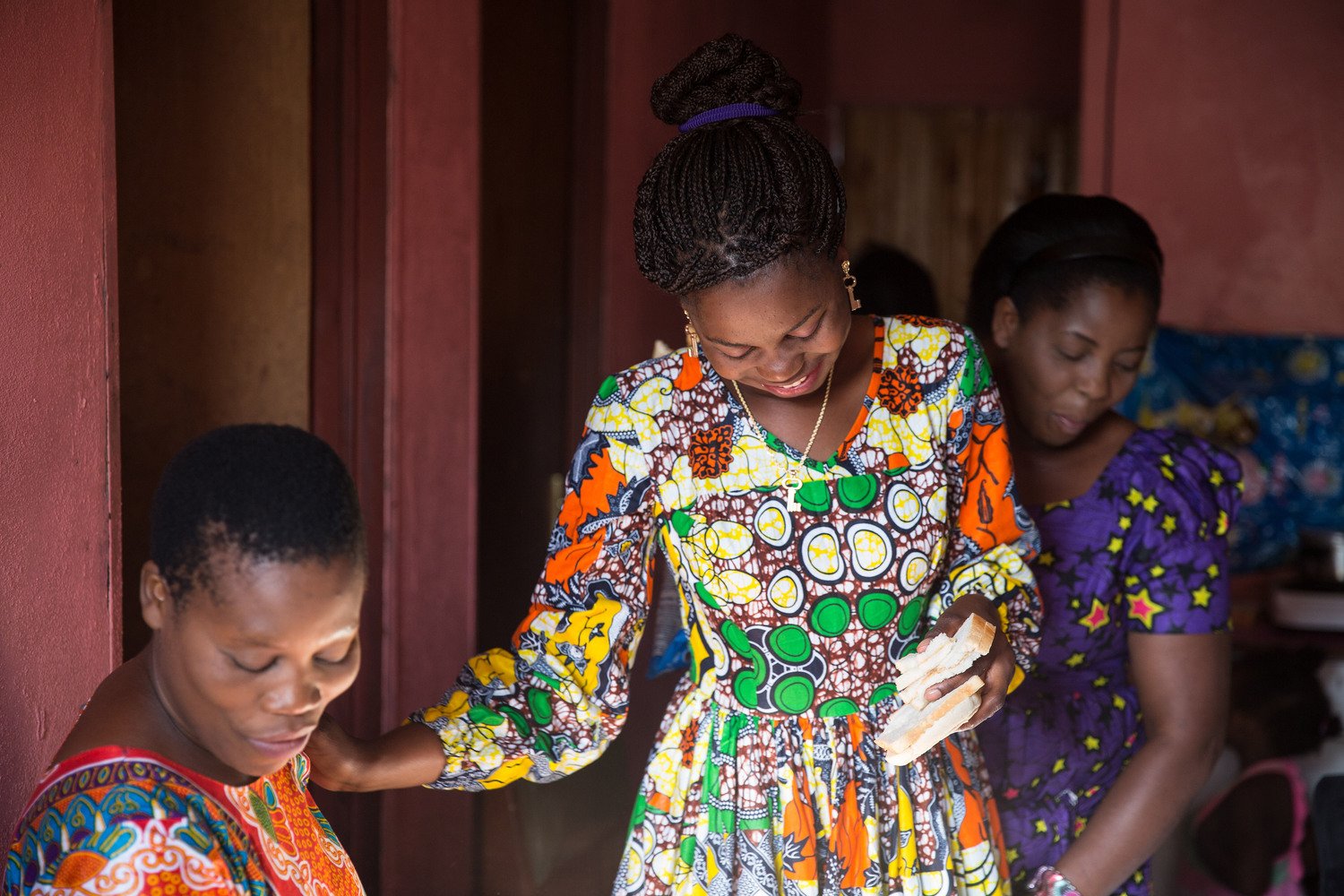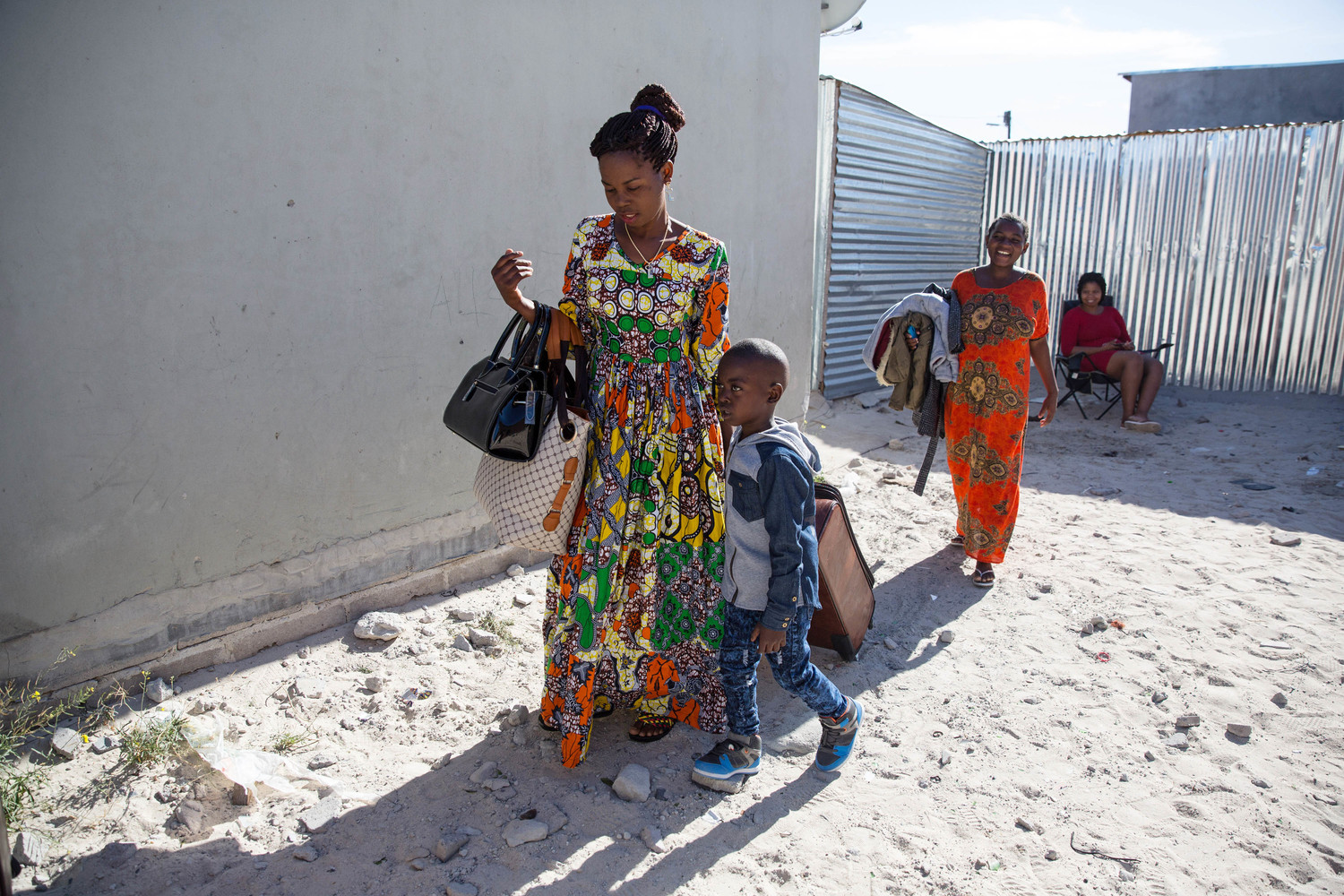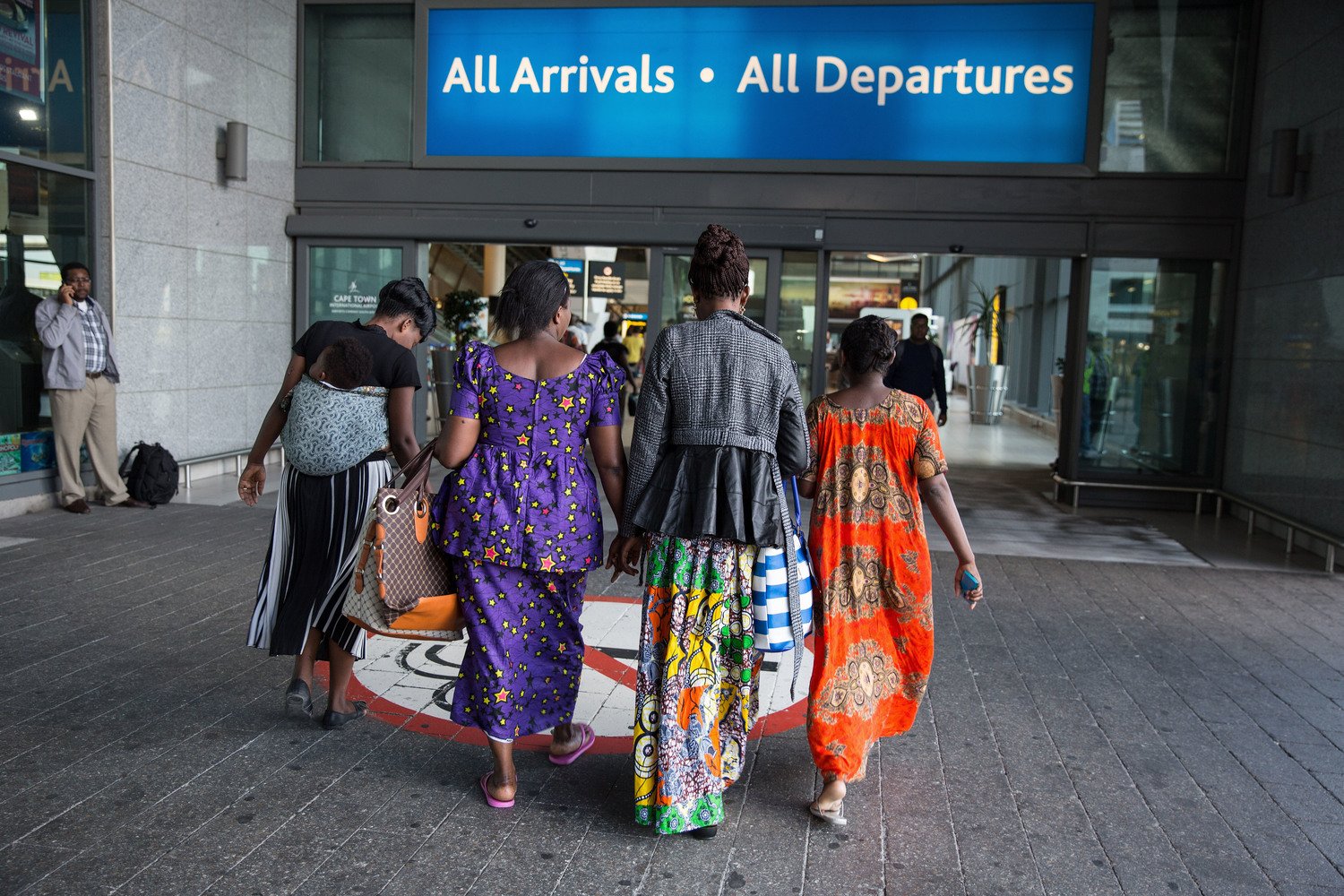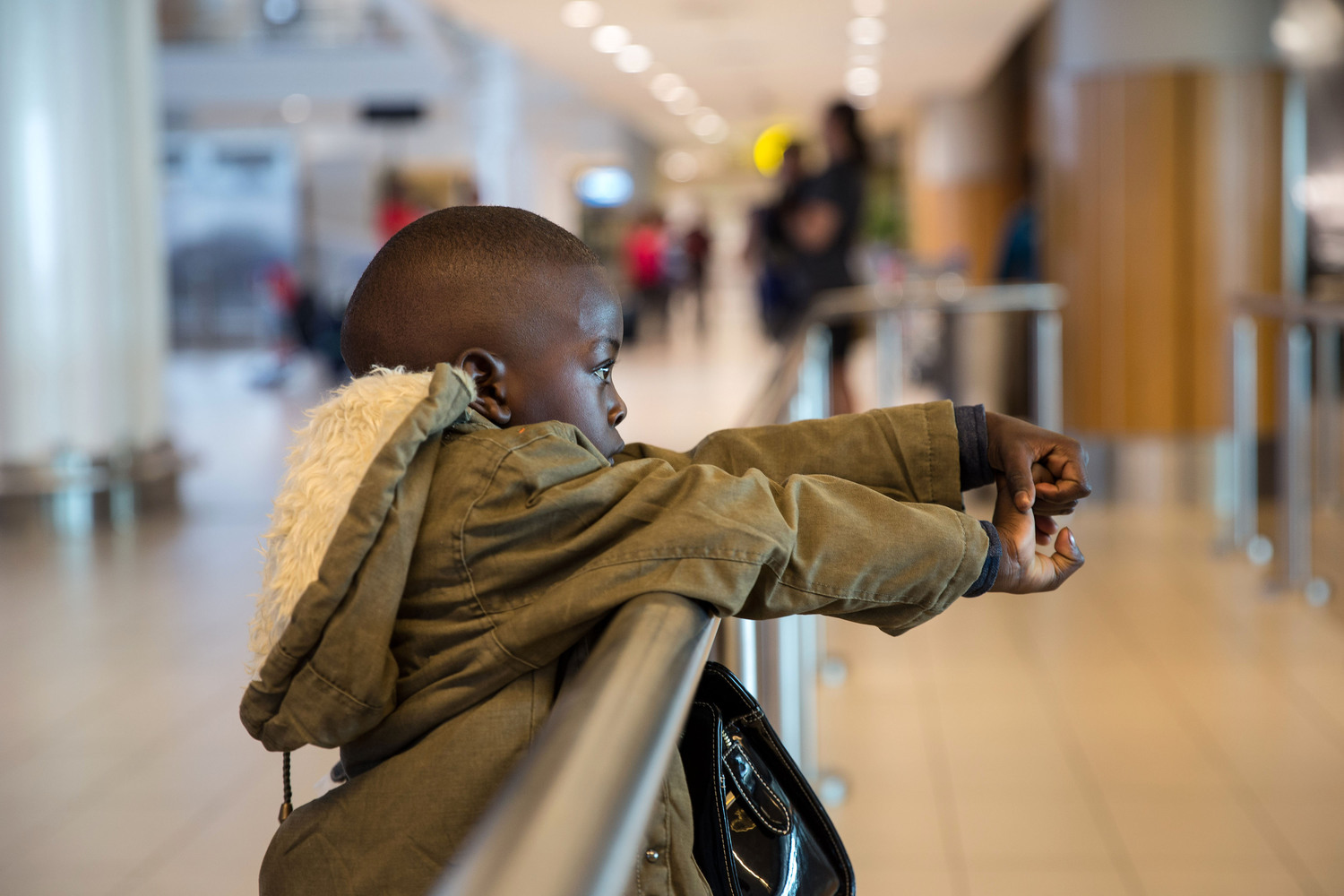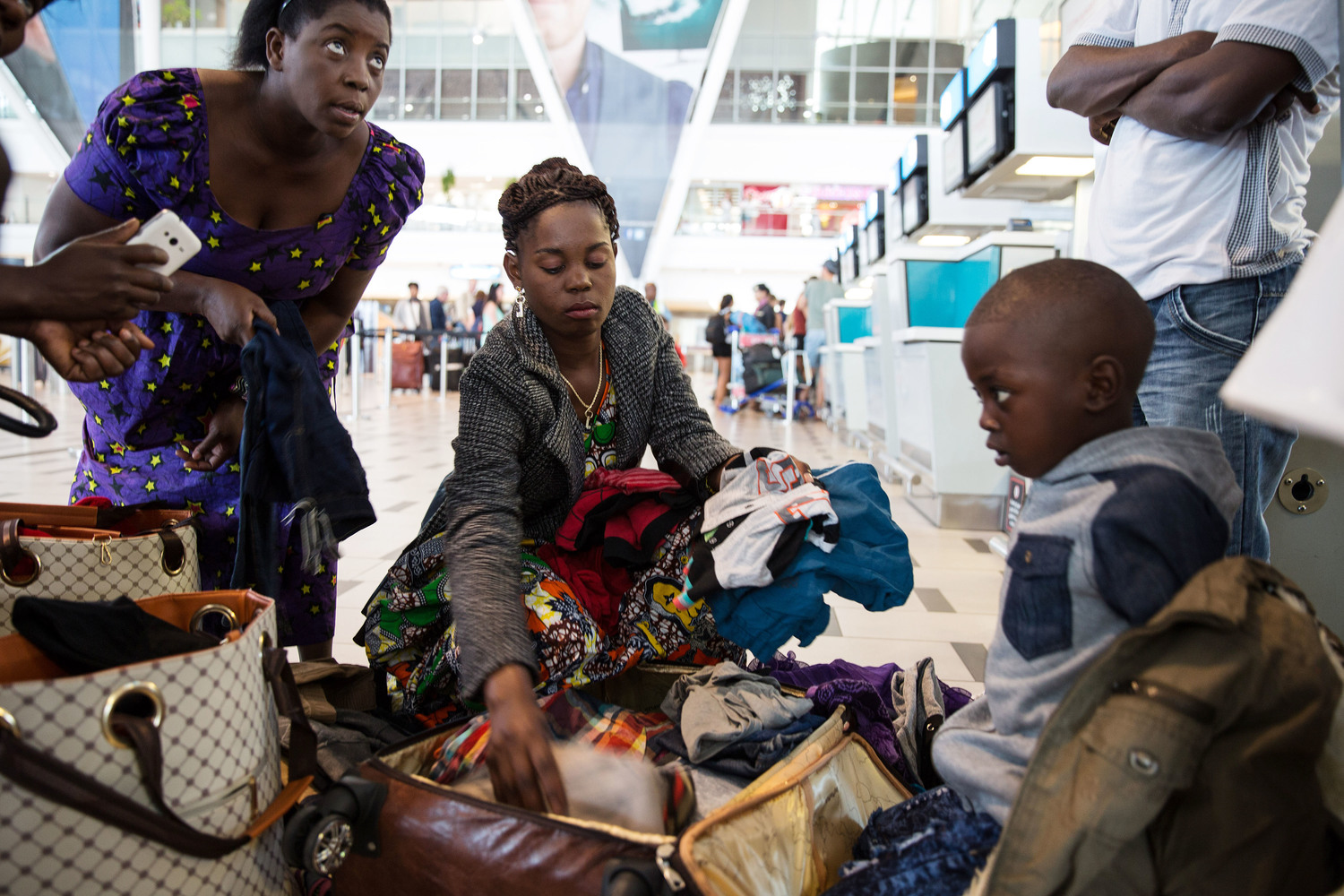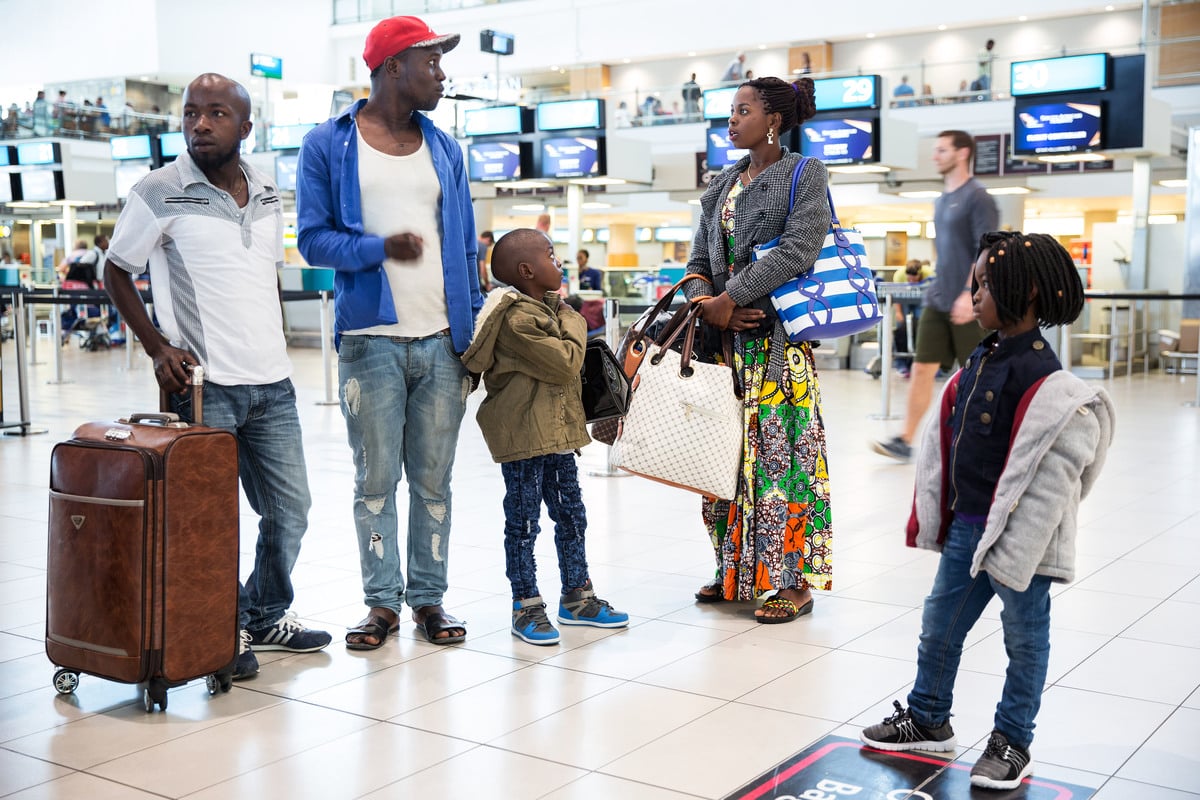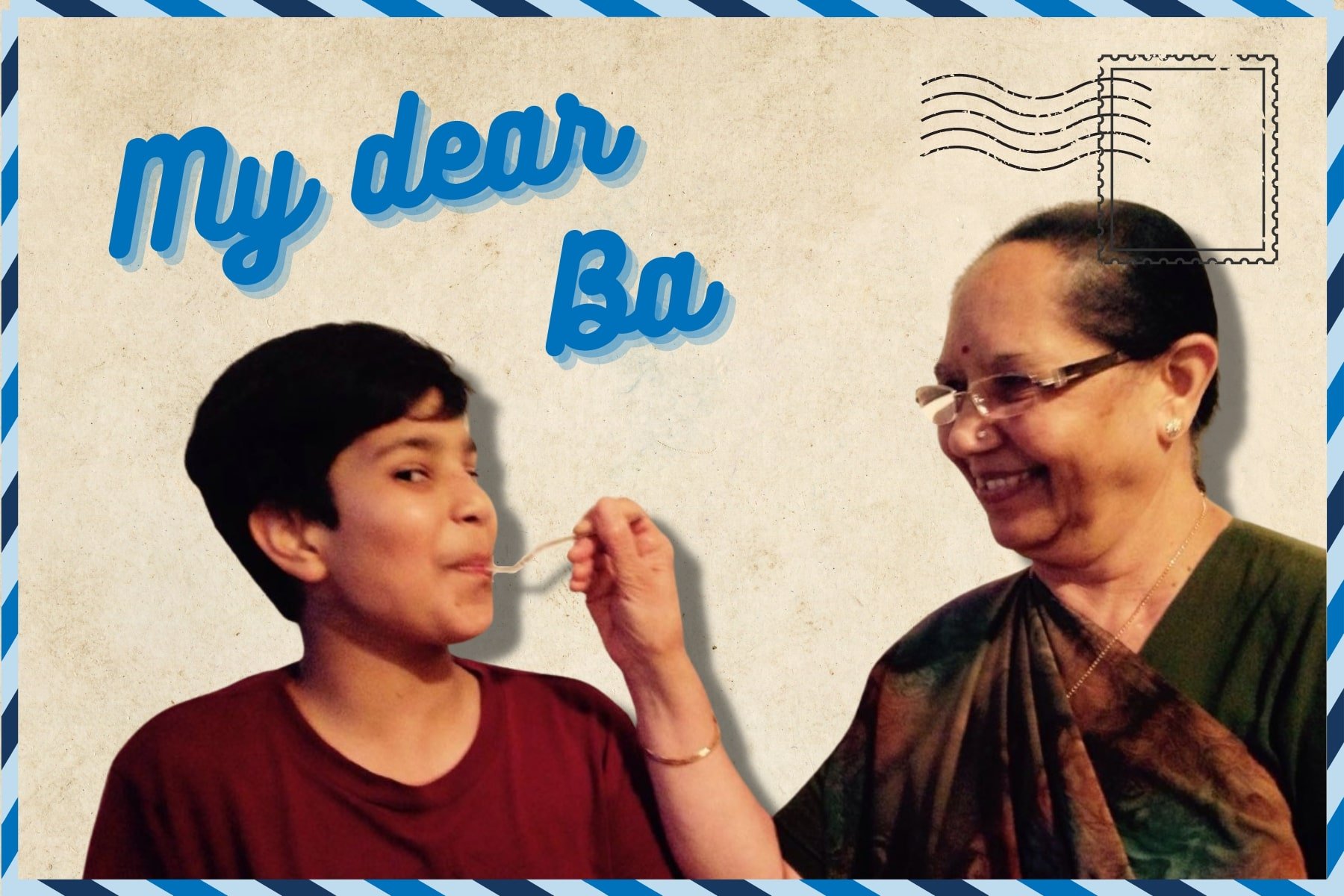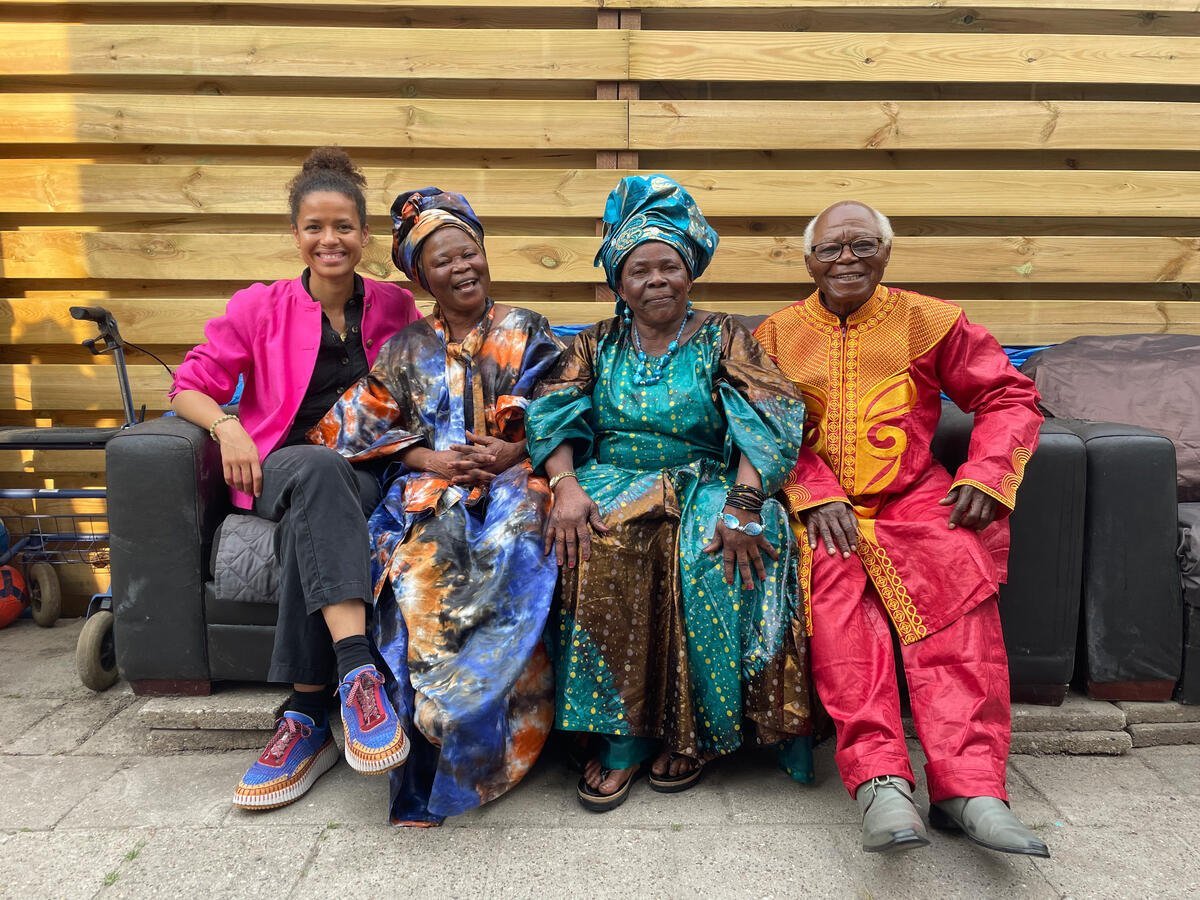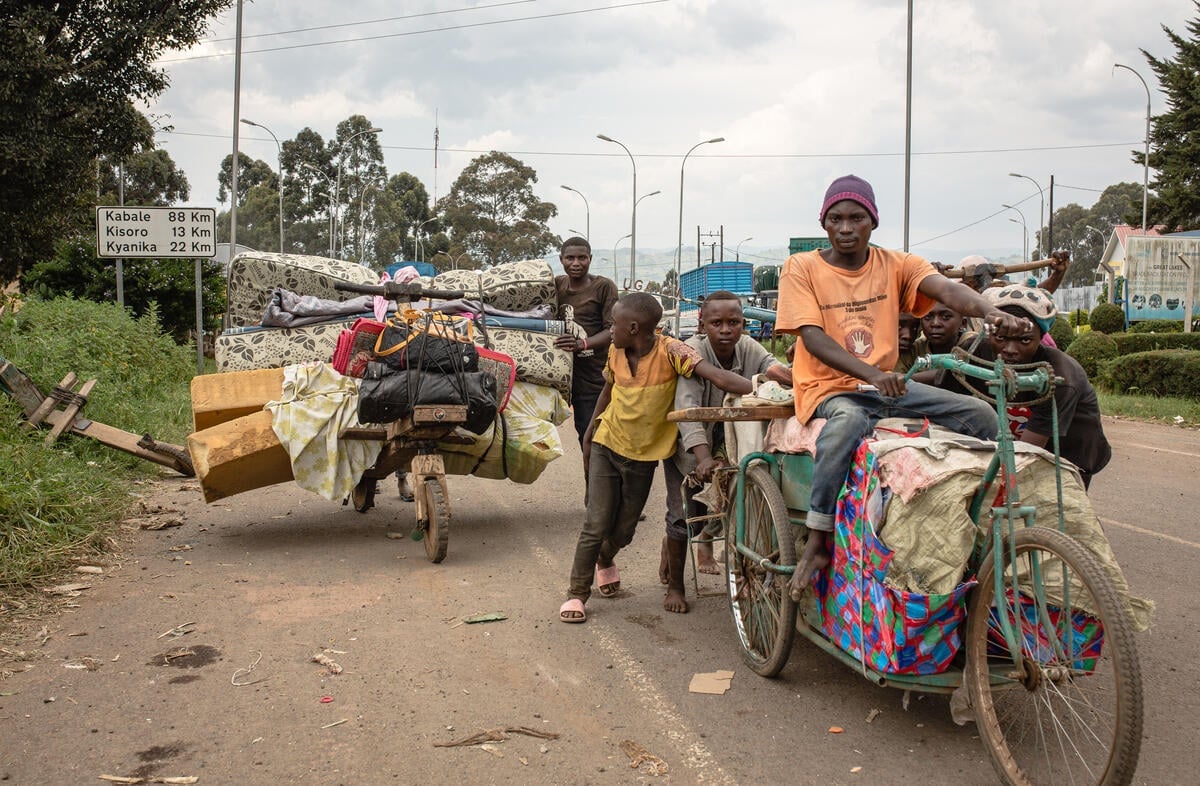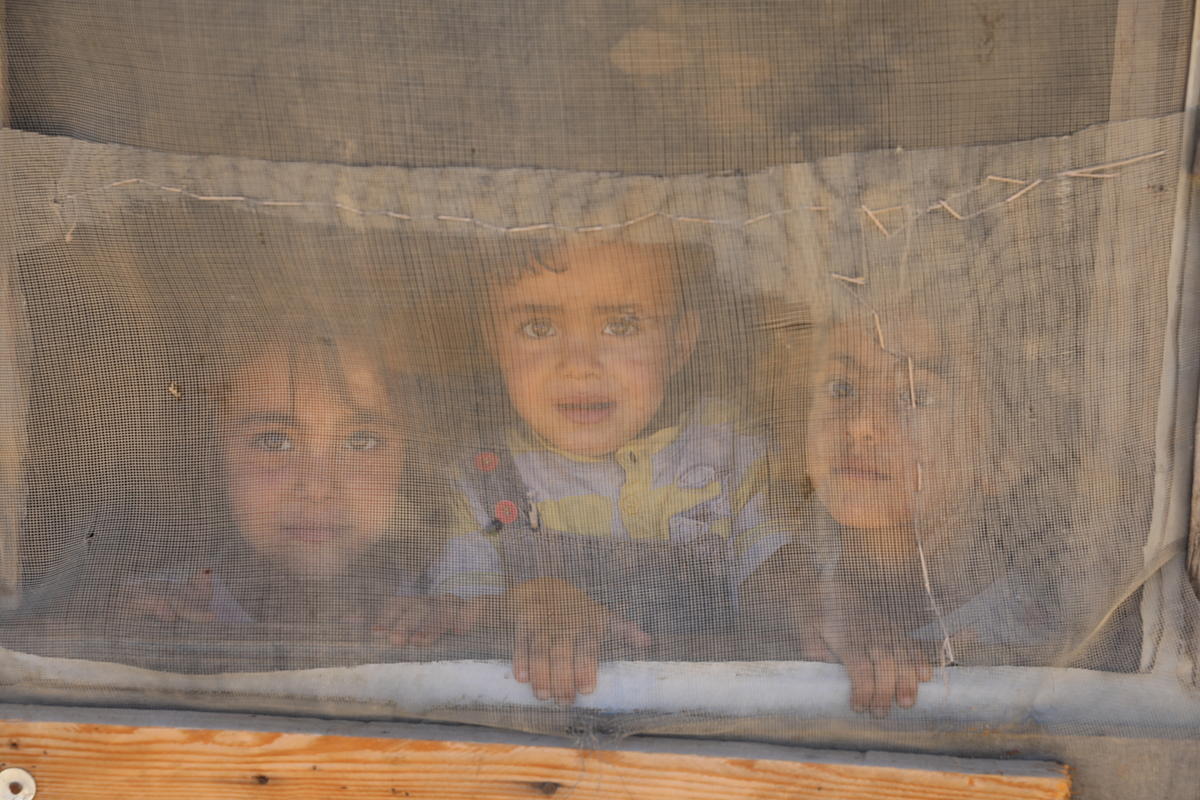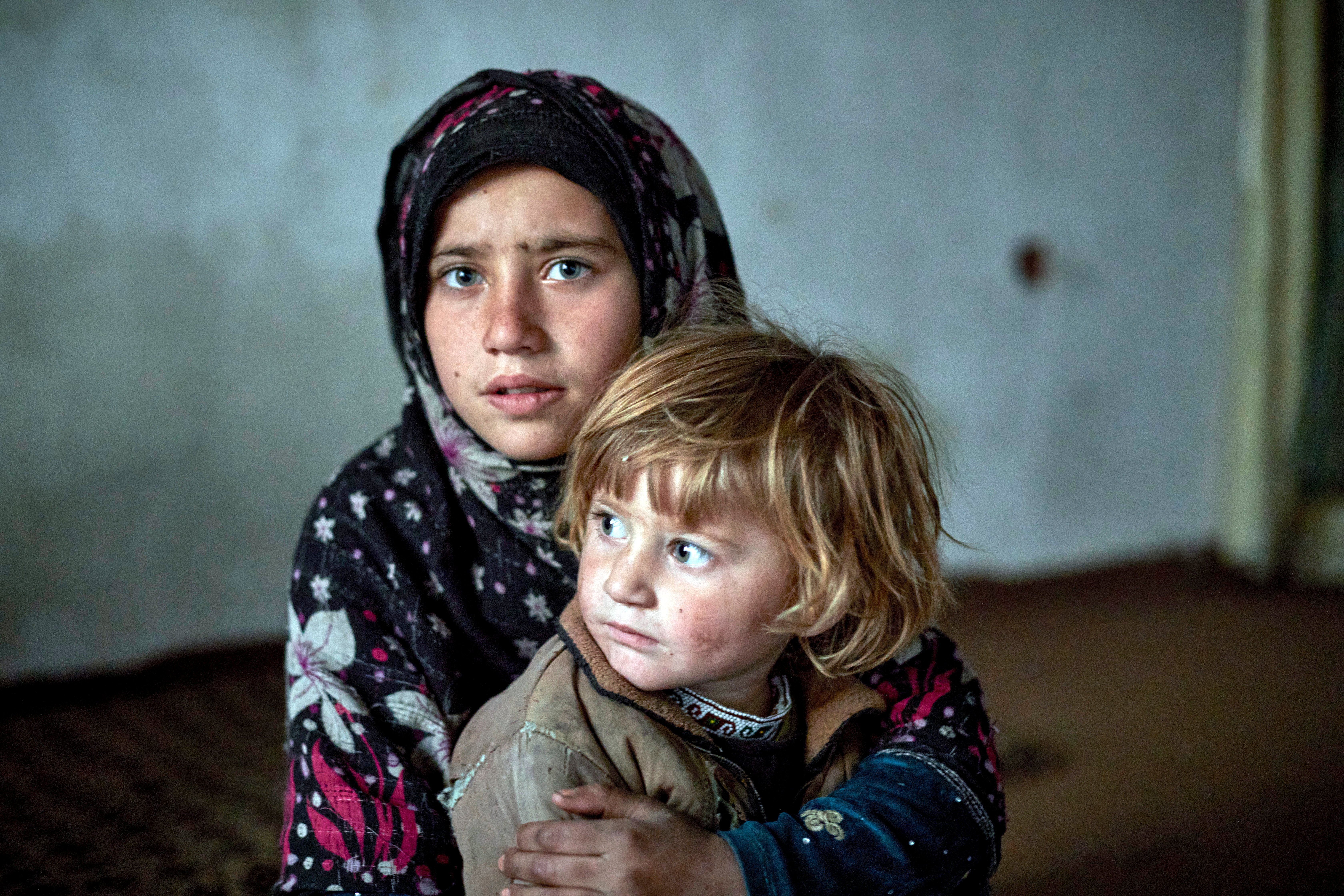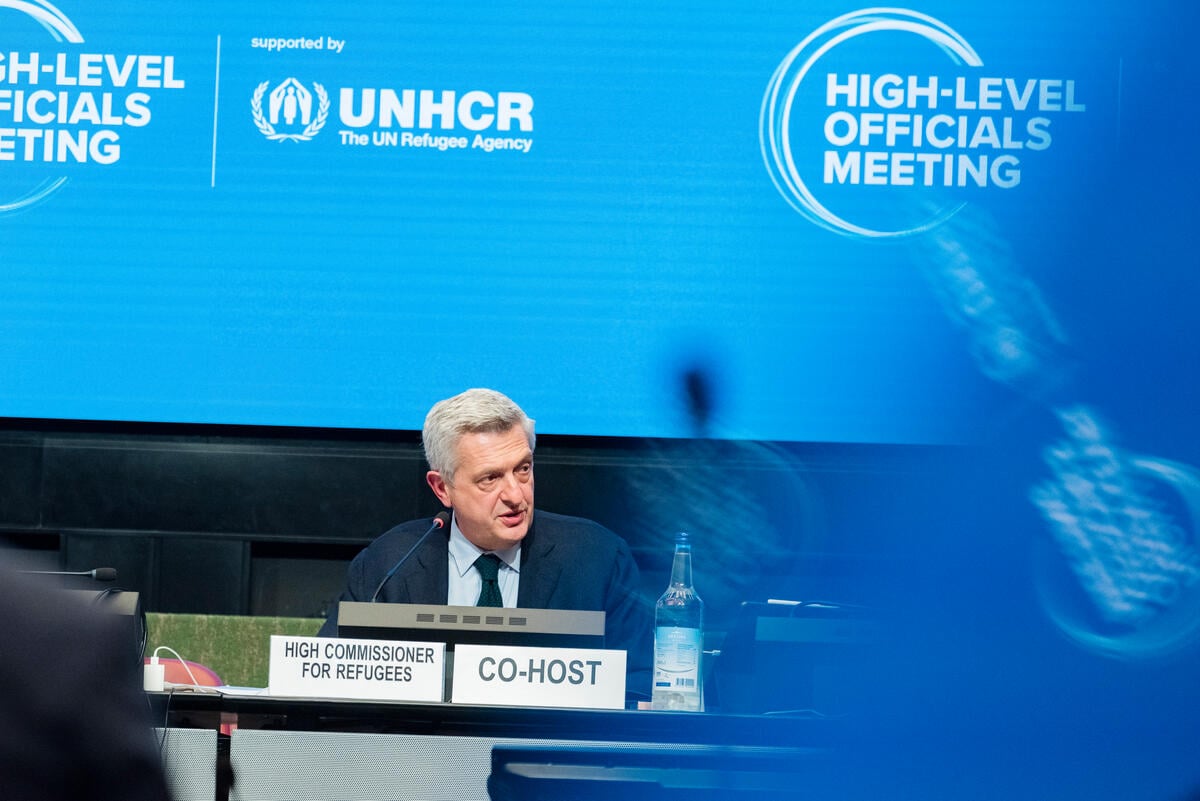Congolese family puts tragedy behind them and heads for new life in France

Congolese family puts tragedy behind them and heads for new life in France
The fatigue and worry etched on Bora Riziki’s face belie her 24 years. As a teenager, she fled the conflict in the Democratic Republic of the Congo after her parents were killed, and tried to make a life for herself in South Africa.
A few years later, now the mother of two young children, she saw her husband fatally shot in front of her in a violent car-jacking and soon afterwards her brother, with whom she had been reunited after a long separation, was also killed.
However, today Bora is happy. She and her children – Amina, five, and seven-year-old Ibrahim – are leaving their township home near Cape Town to start a new life in France under a UN Refugee Agency, UNHCR, scheme to resettle the most vulnerable refugees.
Interviewed by UNHCR in her small house in the township of Delft shortly before her departure, Bora described the growing xenophobia in South Africa and how she came to live in fear for herself and her children.
“My husband was murdered, then my brother … I don’t know why,” she said, as Amina, whose hearing is impaired, and Ibrahim played nearby. “Since then, I’m afraid whenever anyone looks at me.” In Delft, it is best to avoid attracting attention, especially if you are a foreigner.
“My husband was murdered, then my brother."
Bora grew up in the city of Uvira in South Kivu Province in the DRC, on the northern shore of Lake Tanganyika. After her parents were killed, she first sought shelter with her uncle but, at the age of 15, decided to flee the conflict. She set off on a five-month odyssey that eventually took her to South Africa.
“It was war, my father was dead, my mother was dead,” she said. “Life was so hard… I felt bad, stressed. Sometimes I could not eat.”
She travelled across Tanzania, where she spent a month in prison for having no identity documents. After her release she continued her journey, on foot and by boat and train, stopping off in Malawi en route. Eventually, she reached South Africa, having lost contact with her sister and two brothers.
She arrived in the township of Philippi, near Cape Town, where a fellow Congolese refugee, Rusiga, took her under his wing and helped her to find accommodation and apply for asylum. Soon afterwards, they married and moved to Delft to open a business.
Rusiga ran a small hairdressing salon and set up a makeshift grocery store for her, where she sold soft drinks and sweets. “But with the shop the problems started. There were always thieves in the house.”
Her voice dropped and she looked away as she described the attack by three armed men while they were in their car outside their house, during which her husband was fatally shot. “Amina was still a baby in my arms. Ibrahim, who was three at the time was sitting in the back," she recalled. The gunmen surrounded the car and fired on her husband, but she managed to run into the house with Amina and hid in the toilet. The attackers caught Ibrahim in the car and beat him.
The boy managed to escape and rejoin his mother as the thieves drove off in the car. Her husband, who was badly wounded, managed to drag himself into the street to speak to a passer-by. He handed over his cell phone and asked the stranger to call for an ambulance, but he simply ran off with the phone.
Bora eventually found him lying in the street covered in mud and blood. “He told me: ‘Look after the children … I think I’m dying’.” Bora went to get help, “but no-one would help me. No-one.”
"No-one would help me. No-one.”
After the death of her husband, her brother who lived in Durban, came to live with her and help look after the children. A year passed and things seemed to be improving for the family, and Bora hoped she could put the events of the past behind her.
“One day, I was in the house and someone called me, told me my brother was shot. I went to the hospital, but it was too late.”
Her brother’s death was one family tragedy too many for Bora. She fell into a depression and a friend suggested she seek psychiatric help. She attended the Cape Town Trauma Centre for Survivors of Violence and Torture, which steered her towards the local UNHCR office.
When she told her story, UNHCR representatives realised the family met the agency’s vulnerability criteria and a case was put forward for their resettlement. A month later the application was accepted by France.
Ilija Todorovic, UNHCR’s senior regional resettlement officer for Southern Africa, said South Africa was one of the main countries from which the agency had submitted cases for resettlement of refugees, “because specific locations in South Africa have been affected by serious security problems due to xenophobia.”
"I went to the hospital, but it was too late."
“France asks us to submit very vulnerable cases, cases with protection problems or specific medical needs. Strong cases, quantifiable and justifiable. They want to be sure that these persons are real refugees. And they also take certain cases that have specific needs for urgent resettlement.”
Although Bora knows little about France and is a little fearful of the unknown, she is pleased to be leaving. “Sometimes I am scared, sometimes happy. But now I am very happy.”
As the hour of departure approaches, Bora and the children are dressed in their Sunday best. They are escorted to the airport by an official of the International Organization for Migration, Zoe Rohde, who helps them organize their luggage.
With a final backward glance, Bora says: “I am happy to leave Delft, but sad to leave my friends and my [other] brother here.”
She would like to visit them one day, “but not in Delft. I don’t want to come back in Delft, this place is not safe”.
At the airport, after a tearful goodbye to her friends, Bora turns her back on the past and walks through the departure gate and into her new life.


